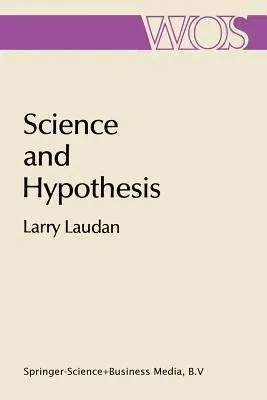Larry Laudan
(Author)Science and Hypothesis: Historical Essays on Scientific Methodology (1981)Paperback - 1981, 21 April 2014

Qty
1
Turbo
Ships in 2 - 3 days
In Stock
Free Delivery
Cash on Delivery
15 Days
Free Returns
Secure Checkout
Part of Series
The Western Ontario Philosophy of Science
Part of Series
Western Ontario Series in Philosophy of Science
Print Length
260 pages
Language
English
Publisher
Springer
Date Published
21 Apr 2014
ISBN-10
9401572909
ISBN-13
9789401572903
Description
Product Details
Author:
Book Edition:
1981
Book Format:
Paperback
Country of Origin:
NL
Date Published:
21 April 2014
Dimensions:
22.86 x
15.24 x
1.47 cm
ISBN-10:
9401572909
ISBN-13:
9789401572903
Language:
English
Location:
Dordrecht
Pages:
260
Publisher:
Weight:
371.95 gm

